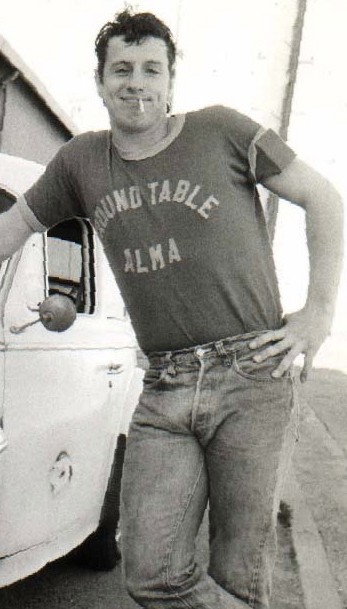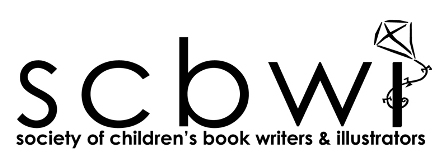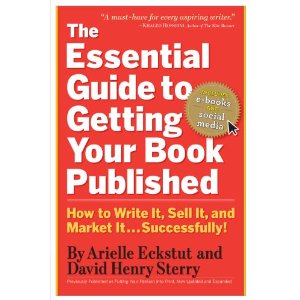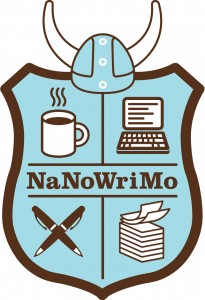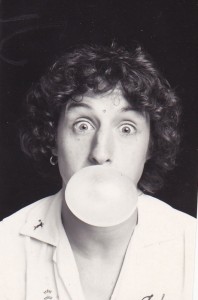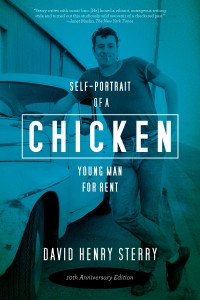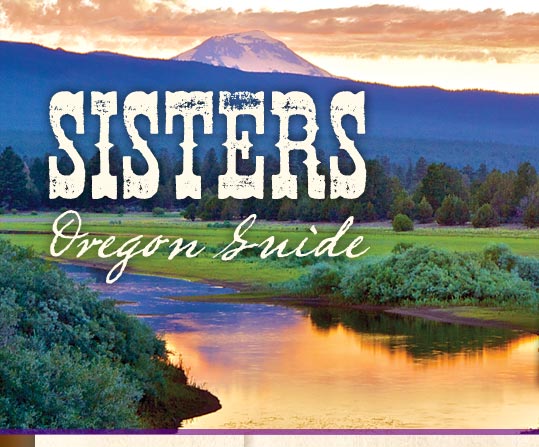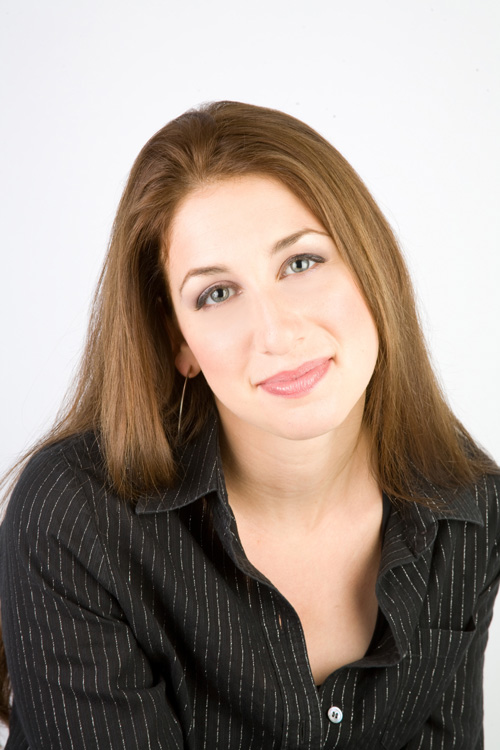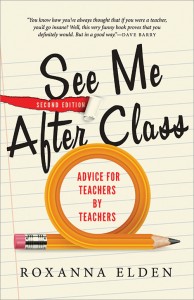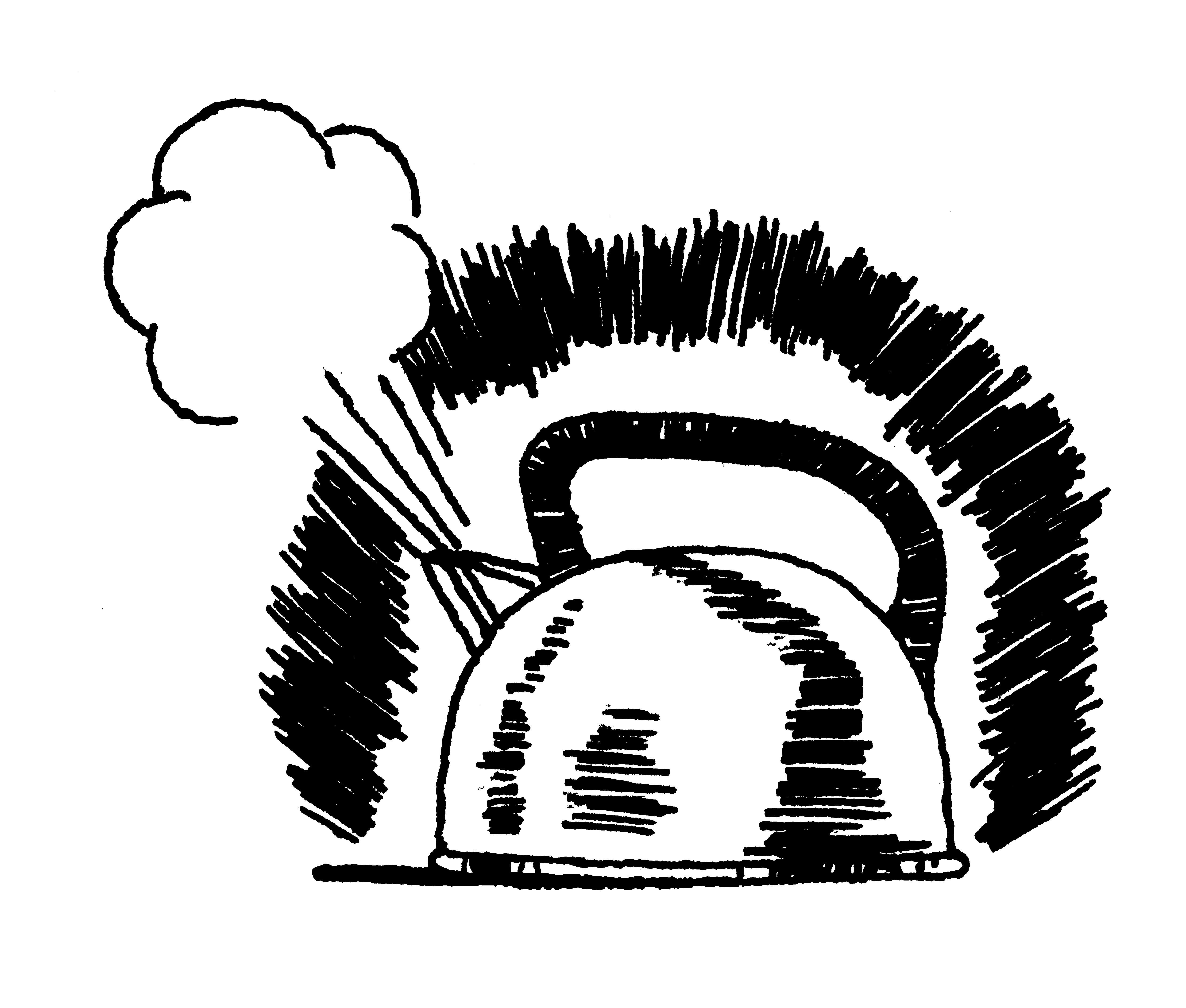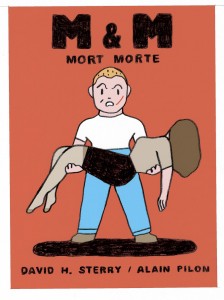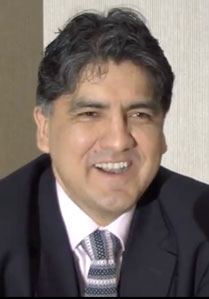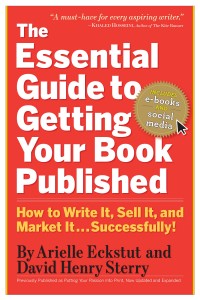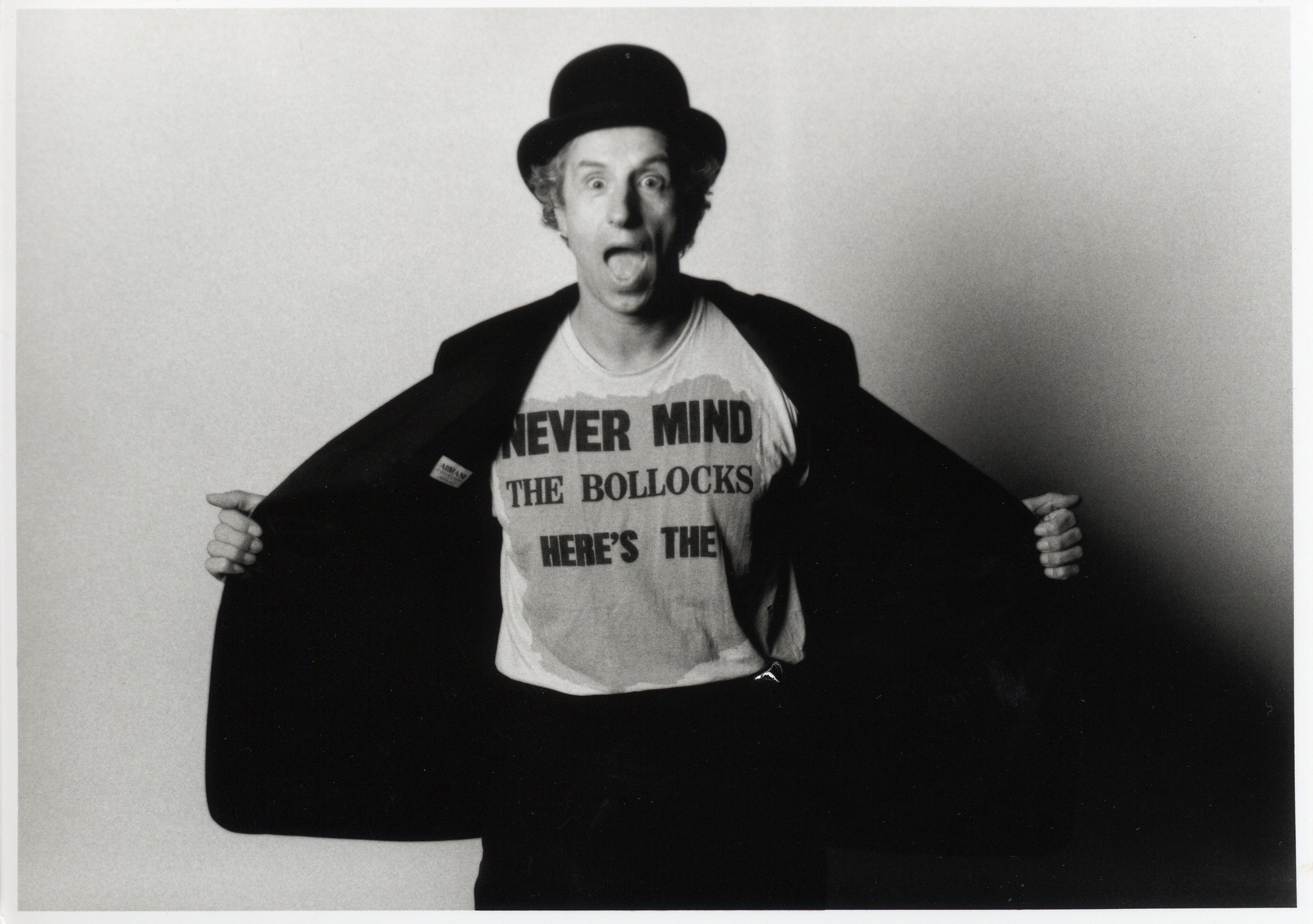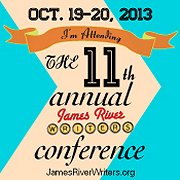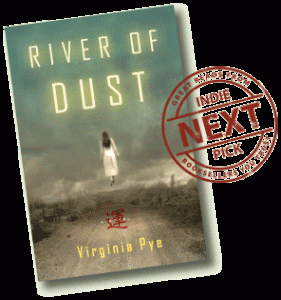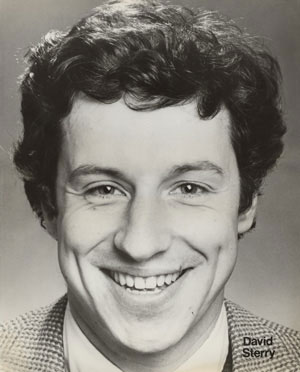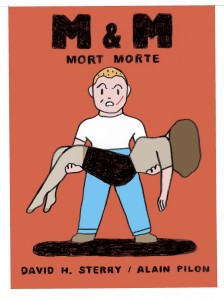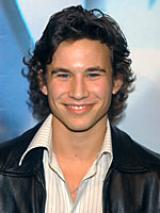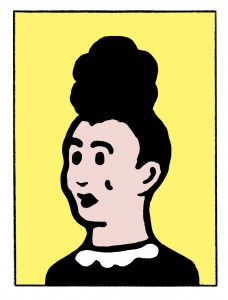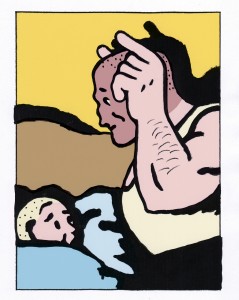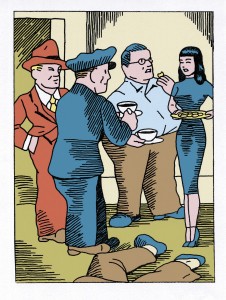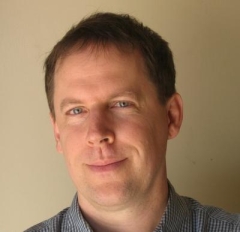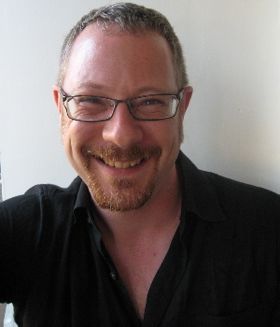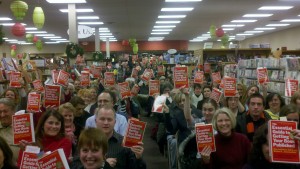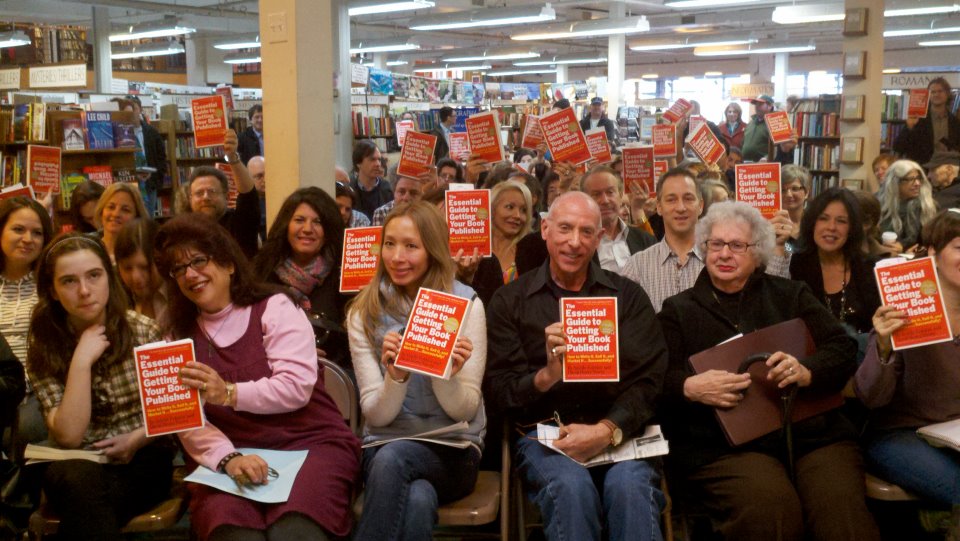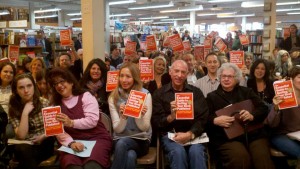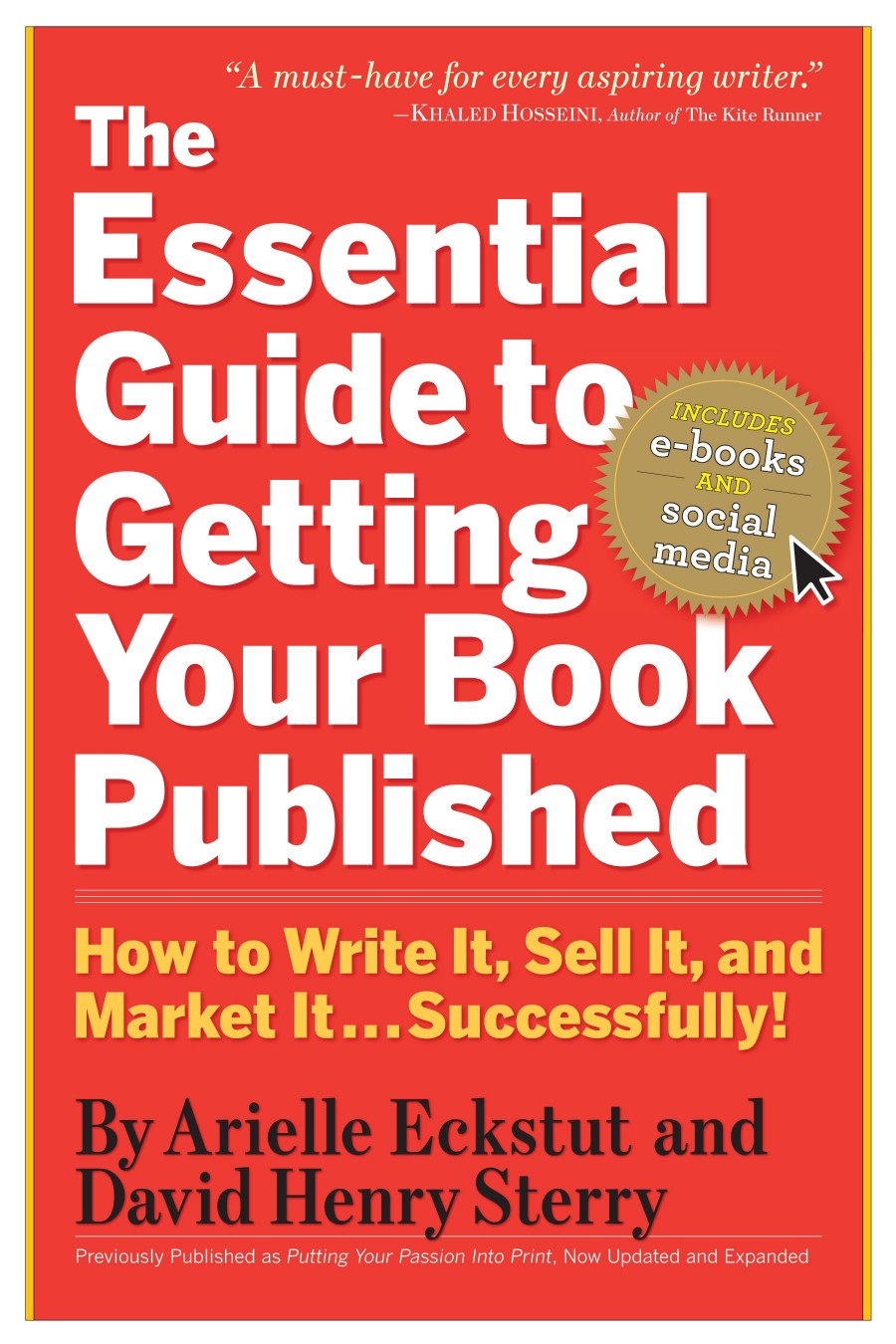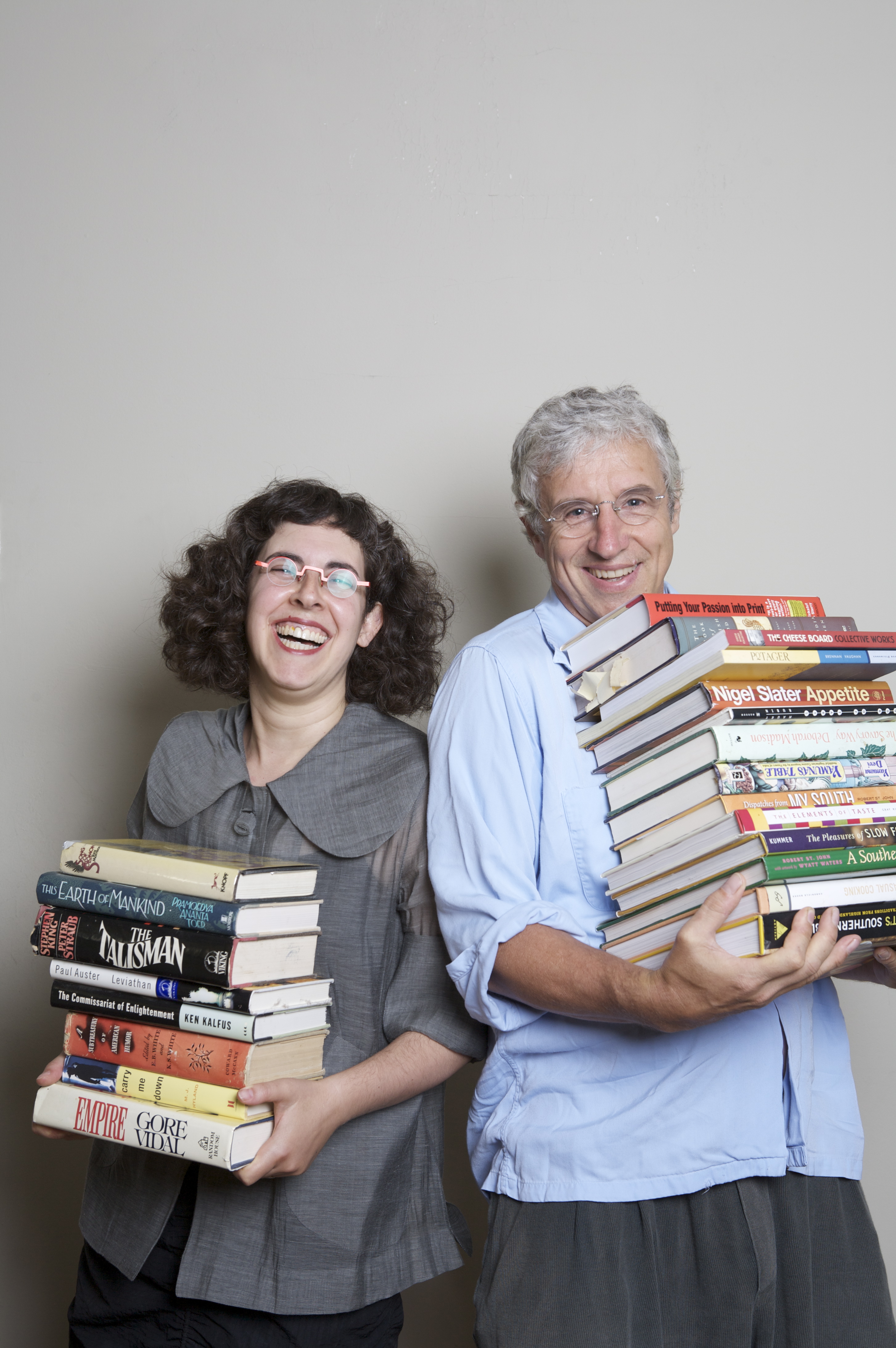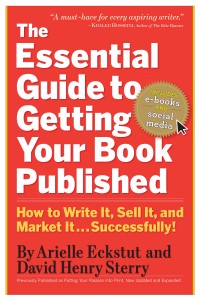A.C. Where are you from? I know you have British origins.
D.H.S. I was born in New Jersey and moved back here six years ago, from San Francisco. But I lived all over America. Alabama, Texas, Upstate New York…
A.C. Where was home, when you were a kid?
D.H.S. Anywhere my family was. But I feel like San Francisco is my home. I lived there twice, and that’s where I kind of left my heart. But I have a beautiful house here, with great neighbors. And it is really a gorgeous place to live.
A.C. Let’s go back to your childhood. What kind of kid were you?
D.H.S. I was a very helpful child. Actually a little bit too much, to the extent that teachers would write these reports saying that I didn’t have to be ‘so helpful in class.’ And I am the oldest of four, with a father gone all the time and a mother overworked with us; that is why I helped all the time with my brothers and sisters.
A.C. Why did your family travel so much? What did your parents do?
D.H.S. They were immigrants, from Newcastle, in the North of England. My father grew up where there were only half-houses. He did not even have a toilet in his house; it was an old world. He came to America in the late 1950s when there was very little opportunity in England, for a college graduate like him. In the United Stated he got a job for a company that manufactured explosives, and they kept promoting him by sending him somewhere new. He almost became a victim of his own success, although I don’t really think the term victim is appropriate. But it was hard to constantly move around. On the other hand, he was the American dream; he kept rising up the ladder of this company, and he literally went from being a dishwasher to being a partner in the space of twenty years.
David does not hide a bittersweet laugh, when he ends the story with what he calls the ‘new American dream.’ Because his father is now broke and in therapy after a nervous breakdown and after his wife has run away with a woman; the one she would eventually marry. She has become a lesbian.
D.H.S. He started having sex with crazy women. I was sixteen and I was living with him at that time. He had lost everything.
A.C. How difficult was it, for you, to write about them, in Chicken? Because, as writers, we have the duty of being both careful and respectful to the lives of the people we involve. My novel, for example, is not a memoir but it is very autobiographical. Many episodes are based on my life and I did not know how to talk about my parents or other people involved, at first. I felt angry, guilty and hurt, too. Just because we decide to purge and get clean, it doesn’t mean they decide to have their stories publicly disclosed as well.
D.H.S. And my parents are English. Talking about them publicly was so mortifying to them!
A.C. How did they react?
D.H.S. So, I got this book deal to publish the memoir. The publisher was Judith Regan. I got it only based on a proposal; I had not even written the book yet. And, of course I had not told my parents. For I wanted to tell them once I was 100% sure the book was going to be published. The first thing Regan told me was: “I don’t want one of those fucking books where the writer blames their parents; do you understand me?” And for as hard as it seemed, it was a great advice for me, because I did blame them.
A.C. But what I am starting to learn is that we all have shit happening to us, David. And it’s not what happened to us, but what we have made of it, and what we keep making of it.
D.H.S. Exactly. It’s absolutely right. And, based on what she had said to me I decided to call my parents by name, in the first couple of drafts of the book. Harper Collins didn’t really help me in the editing process; all they were worried about was not getting sued. So my agent became my editor and she secretly said: “This is so bad we are gonna have to give the money back!” Instead, what she did tell me was: “David, they are your parents. You can’t call them John and Maurine; they are mom and dad.” That is how removed I was from actually revealing my true self. For I was raised to never reveal anything. And part of what got me into so much trouble while I was growing up was not being able to ask for help. I literally had to learn how to talk to people like an adult, besides recovering from my addictions. Actually hypnotherapy helped a lot.
A.C. How old were you when you started writing Chicken?
D.H.S. I was in my late thirties and I was writing dumb screenplays in Hollywood at that time. I hated my job, although I was making a lot of money.
David is working for Disney in those days. And those are also the days of his escalating sex and cocaine addiction.
A.C. You mentioned making money in Hollywood. In your interviews you talk a lot about the feeling of self-worth that you experienced the first time you got paid to have sex, professionally. I don’t know about being paid to have sex because I was never a sex worker. However, I am very familiar with the feeling of cheap worth before a man, and when only performing the act of sex. For sex can become a performance that makes you feel worth and powerful, even when you know that you are everything but. Quoting Hank Williams, you said: “But there was a hole in my bucket.” Let’s talk about sex, about the self-gratification of your past as a sex technician – as you rather call your former job. Is that what you felt, at first? Did you feel powerful, at seventeen years old? Because we try to fill that hole with anything within sight, until we hit bottom…
D.H.S. Yes, and soon as there is a hole it doesn’t matter what or how much your try to fill it with, whether it is sex, drugs, money, etc. For it all comes out the bottom. That’s why the metaphor was so powerful for me. You know, so many young people that get into the sex business do it for money. I was completely alone. Los Angeles is a cold and hard place, despite the fact that there are palm trees and that is 82 degrees, the week before Christmas. It’s the way we live in LA, the isolation from other humans, the time spent in our car to go from one place to another. While in New York, for example, you have to interact with people, whether you want it or not, even if just to go on the subway. And that’s how it is, in most places.
I was seventeen and I felt alone. I was robbed. I got assaulted and raped. I had nothing and nobody.
A.C. That’s when you met the guy that pimped you.
D.H.S. Yes, his specialty was finding kids that were alone, cute and vulnerable. And that was I. This guy ran a fried chicken restaurant, as a front, and he would hire you for a week, to actually fry chicken. Now, I don’t know if you have ever fried chicken in your life professionally, but it’s fucking horrible. You get burns on your arms and you smell like chicken. It’s a miserable fucking job. Just wearing that little hat is nasty!
A.C. That’s when he shows you the trick, after the week of frying chicken…
D.H.S. Correct. At the end of the week he gives you your paycheck. And it is so small that you can’t possibly live on it. It’s all very psychological. He is one of the most generous, warm, kind and smart persons I have ever met in my whole life. So, when you look at the check you are horrified; because after all the hard work you did, you cannot even survive. It’s right then, when you are feeling worthless, with no money and nobody who likes you or cares for you, at the lowest point, that he says to you: “Do you want to start making some real money?” Of course, you say: “Yes.” And he tells you about these rich friends of his whom you could party with. I was so naïve that I saw myself at cocktail parties discussing the latest issue of The New Yorker, just because I was cute. I had this idea in my head of being this young Oscar Wilde…
We both laugh when he is recalling the very beginning of his career in the world of prostitution. Because he does laugh about it, and because he is very candid in admitting that it was his choice. David does not have regrets for his past, today. He closes his eyes and hides a residual of teenage embarrassment nonetheless; his body and his white hair wave, mocking a hypothetical Wilde with a cocktail in his hands. But there is nothing to be embarrassed about. At seventeen we all believed in everything they told us. Sometimes we still do, in order not to listen or see the inevitable truth.
D.H.S. But, of course, he meant servicing adults, sexually. My first job was kind of a trial and I was very nervous. As I always say, one of the differences between a female and male sex worker is that there are many things in life that you can fake; an erection is not one of them.
A.C. True. But isn’t somewhat safer to be a male sex worker compared to a woman?
D.H.S. Mostly, it is. The dynamic of power between men and women is something that a lot of men still don’t understand. The other day I was talking to this woman in a parking lot, late at night. She had recently been assaulted she freaked out as soon as a guy walked past her. I could sense that feeling that screams: “I’m not powerful enough to stand up to this guy who can just pick me up as a rag doll.” Having been abused by someone much more powerful than I, I can truly relate to that feeling. However, what happened was that I found a real affinity for the job, because once again I was looking after people. In a way, that’s what you do when you are a sex worker.
A.C. Providing a service? It just came out of my mouth, but I am smiling while saying this. I must admit it.
D.H.S. Exactly! That’s exactly what you do. You look at the person you have in front of you and you try to understand what they want and need. That’s what you do when you are a real sex worker and not a thief. They must tell you: “Wow, that itch I had is now scratched.” And I found out that I was really good at that.
A.C. Do you think that your sex work triggered your sex addiction?
D.H.S. Oh, of course it did. But as you know, it’s very complicated, understanding why a person becomes addicted to something. However, on that first job, when I walked into that room, I felt powerful, while in real life I felt powerless, a meaningless piece of shit. That woman wanted something from me that I could provide her, a very specific set of tasks, with difficulties, that I could nonetheless perform. And, when it was over I put the money in my pocket and felt big, large.
I know the power he is talking about. Because I recall feeling it, too, many years ago, the first time I had sex when I was high. That night, in another life, I thought I had understood how to be a woman that was not Alice. I hated Alice. And I never felt more in control, not realizing I would eventually lose it all and despise myself even more.
D.H.S. In real life I felt small and meaningless. It was 1974 and that $100 bill was my sense of self-worth. Then, of course, when you have sex your brain sets off these endorphins and you get a chemical high from it. So, for me it was both a physical and an emotional empowerment.
A.C. You have been asked before if you have felt exploited. You were seventeen years old in those days so, of course, there was a part of you that felt exploited. But I would like to talk to you more in depth about what your definition of exploitation is, in the sex world. Prudes and bigots think that porn is exploitation, which is a huge mistake. And they don’t know what they are missing, from time to time. Actually, my take on sex is that there’s almost nothing wrong about it, as long as it is at your own terms.
D.H.S. Absolutely, I completely agree with that.
A.C. Now, I do acknowledge the urgency in resolving the terrible issue of sexual exploitation and sex trafficking. But it’s not what we are talking about, today. In your opinion, where is the thin line between personal choice and exploitation in the sex world you are familiar with?
D.H.S. I did this interview on NPR a while ago and I was introduced as someone ‘forced into prostitution.’ And that’s the idea that a lot of people have. I had to tell the host: “Look, no one put a gun to my head and tried to shoot me.” I could have walked away at any moment. It was my choice. I felt enormously exploited frying chicken, to be honest with you. Because I was forced to work under brutal circumstances and I was paid a piss. That was exploitation. The whole Fast Food industry is built on exploitation.
A.C. Well, Walmart is built on exploitation.
D.H.S. Walmart! Oh my God! Any giant corporation that uses labor like this is in the exploitation business. If you are at the lowest level of the food chain you are just going to ask yourself: “How am I going to be exploited? What’s the exploitation that best suits my personality?” When you are seventeen and in that state, your choices are very limited, with no education, resources or networking.
It’s true that the guy did not explain the business very well, at first. He didn’t tell me that some of the things that were about to happen to me would remain in my nightmares for the rest of my life. He didn’t tell me that this would potentially cause me some horrible personality disorders. But, in that job I also had beautiful experiences where I wasn’t exploited at all, and where I was treated with great respect and honored for my skills.
A.C. Those were the best jobs, what about the worst?
D.H.S. In the worst I was treated like a piece of shit and asked to do things that no teenager should ever been asked to do. Ever.
A.C. Are you saying that no matter where you work, exploitation is everywhere and affects the weak in the same way?
D.H.S. Yes. I believe it very strongly. And the more I live, the more I am convinced of it. The strong feeds on the weak. That’s how society has been working forever. Media like to make it about sex and prostitution, and although there are prostitutes that are forced to do it against their will, there are also many people who are forced to clean toilets or kids that are sold and have to become soldiers and shoot people in the head.
A.C. Now that we mention prostitution, you wrote the anthology Johns, Marks, Tricks and Chickenhawks: Professionals & Their Clients Writing About Each Other. How did you get the clients to write their stories? It must have been difficult. Sex workers seem to me more comfortable with what they do than their clients, who would rarely admit paying for sex.
D.H.S. That was one of the most shocking things about the project. And you are absolutely right, it’s easier for somebody to say: “Yes, I sell my body for sex,” than for somebody to admit the purchase of sex. It sounds so ridiculous to me, especially because in history, being a prostitute has always been considered the worst possible profession. The insult ‘whore’ always the lowest one. Just think about the Scarlet Letter.
A.C. Is something shifting in the sociological perception of prostitution and the sex worker profession in general?
D.H.S. Something is indeed shifting. I expected it to be a very easy process, here in America, to have people writing about their experiences in buying sex. But it was very hard. All my friends I asked to either laughed at me or were scornful, reminding me with pride that they didn’t have to pay for sex. And I told them that they should try, at least once! Like hiring a masseuse, who wouldn’t want to have a massage? But that’s just my opinion, of course. I believe that it is exactly the same transaction.
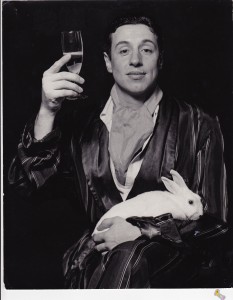 Anyhow, I had so many contacts in the sex business that through Facebook and Twitter I was able to find both professionals and clients who agreed on talking. What opened the gates a lot was the choice of letting them submit their stories with a pen name.
Anyhow, I had so many contacts in the sex business that through Facebook and Twitter I was able to find both professionals and clients who agreed on talking. What opened the gates a lot was the choice of letting them submit their stories with a pen name.
A.C. Did you notice any difference in the male/female or straight/gay world?
D.H.S. Interesting question. I think that in the gay male world they are less ashamed. They all did it once in a while; it’s part of the culture and they are much more accepting of sex for money. Sex is such a fluid thing. And especially older gay men; they had to hide for so long that being gay was a shameful enough thing. There is nothing they are ashamed of. What’s interesting on the lesbian community side is that many women who have sex with men for money are, in fact, lesbians. At first it didn’t make sense to me, it was like a vegetarian working as a butcher. But then I talked to a dear friend of mine and she explained to me that that it’s how they completely separate personal life with a woman at home, and work with a man client. And there is never the risk of falling in love this way.
A.C. Have you ever fallen in love with a client?
D.H.S. Yes. But I was young and confused. I even fantasized about moving in with her. I was seventeen and she was probably forty-five. I lived in a fantasy world so much back then, you have no idea…
A.C. Of course I do. We hate our life and any fantasy is better than reality.
Let’s move away from sex now, because your career has been so diverse. You were a screenwriter for Disney (and plunging into your darkest days of addiction during those days, too.) But you are also an actor, author and a comedian, too. You started by opening for Robin Williams in the 1980s in San Francisco. I am falling in love with American comedy and the more I study, the more I realize what a powerful weapon humor can be. Who were the comedians you aspired to, when you started?
D.H. S. My favorite comic is Lenny Bruce who, of course, was a heroin addict. Very dark sensibility and railing against the hypocrisy of society. Of course, he was arrested and harassed and tormented, ending up dead with a needle in his arm. That’s my hero.
A.C. I love Lenny Bruce, too. He was one of the very first comedians I discovered when I moved here.
D.H.S. And then I always loved Richard Pryor. He famously burned himself up trying to smock rock and when he came back performing he did this joke of him on fire, on stage. He took the darkest parts of his life, turned them into comedy and made people laugh. In doing so, he illuminated the darkest sides of the human condition. Pryor grew up in a world made of hate and violence. And part of his mission was to expose this, through comedy. There is no higher form of communication to me. If I laugh, and then I have that moment when I have to think about what fucked up thing I have just laughed at, I know the artist has reached his purpose. In your head you are debating about the philosophical ideas behind what made you crack, after you just did, hysterically. Those moments are rare and hard to create. Jerry Stahl is the same way, especially in his latest novel.
David tells me about his performing tour with Sex Worker Literati and he is astonished at the type of audience it attracts. “There are a lot of young couple on first dates. We have some dirty old men, too. God bless them. But the audience is very diverse and it’s a lot fun doing it. I notice quite some middle-aged feminist, as well, because we are sending a message of empowerment, after all. Some gay audience is present, as I always put a couple of gay performers. They have great stories!” We briefly discuss the literary business and the side project he has started with his wife, The Book Doctors. Time runs out nonetheless. Sometimes I forget I am carrying out an interview and not just having coffee. I have more questions and I need closure.
A.C. Is there a moment in your career that you are particularly proud of? You are primarily an author today, correct?
D.H.S. Yes, I am. But something beautiful happened during the show that I performed from Chicken.
Chicken became a very successful one-man show, after the book was published in 2002.
My mom had not read the book, as she didn’t want to. My whole family reacted very badly when the memoir got published and they completely shut me out. When I was touring with the show I performed in a college, in Portland, which is where my mother lives. It was her wife, the same woman she had run off with when I was a kid that told her to go and see the show. So my mom did. The night happened to be a big success. Every time that I am in a college I do a Q&A after the show and that night, I introduced my mom to everyone for the first time. I can still see her standing up in the audience, proud and bowing.
David has tears in his eyes when recalling the night in Portland.
D.H.S. She came backstage after the interview and, for the first time she told me that she was sorry for what had happened to me. Had I only told her, back then, she would have tried to help me. That night was a moment of truth and reconciliation, a beautiful metaphor for what writing can do.
A.C. Absolutely. If it wasn’t for both my novel and this blog, I wouldn’t be alive, and sober, to be honest with you. It gave me a purpose and it helped me surviving the pain, the shame and the burden of life. I did not want to live. Through writing I have found my voice for the very first time.
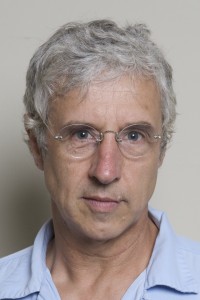 D.H.S. It’s because writing can expose parts of ourselves that we couldn’t expose. After that night my mother and I became best friends, and it all came about through this book I wrote, speaking my truth, something I was so ashamed of.
D.H.S. It’s because writing can expose parts of ourselves that we couldn’t expose. After that night my mother and I became best friends, and it all came about through this book I wrote, speaking my truth, something I was so ashamed of.
A.C. I am reading Advertisement For Myself and Mailer admits how, after The Naked and the Dead, he was not able to write another novel in such a quick and spontaneous way, for a long time. An old mentor told me that some books you write, other write you. This is exactly what we are talking about, some truths just have to come out and, eventually they do.
D.H.S. That’s what happened for me, with Chicken.
A.C. Have you learned to ask for help?
D.H.S. I did learn, although it’s still a difficult thing to do. But I am much better at it than I have ever been. And learning how to do this has helped me how to focus on the things that I do well; while those things that I don’t do well I can understand and acknowledge with those who are good at them. I was having a terrible problem with this book that I am writing, for example. And, normally, I would have just kept it to myself. Instead, I have asked for advice and gathered many smart ideas from many smart people.
A.C. Earlier this morning I read something that made me laugh; the downside of isolation is that we are the only ones to give ourselves advice. Which is quite often a bad idea.
We both laugh. For we both know what’s the kind of advice we are inclined to give ourselves. On my side, I know that I need the inside job, every day.
D.H.S. That’s really funny. I really like that. So now I am not the only one who is giving myself advice. Yes!
A.C. Last one and you are free. Are you okay with your nature and your past, today?
D.H.S. I ask this question to myself all the time. Would I whisper something into my ear at seventeen? “Don’t go into that door? Call your mom?” I wonder if I would be a better person. I would have gone through a lot less agony and pain, but I wouldn’t be the man that I am, I would not have written my memoir and had a beautiful kid.
A.C. How old is she?
D.H.S. She is six and she is such a joy! I wouldn’t be here talking to you, too. It’s a very difficult thing to answer. But I feel that everything I went through, lived and survived, I have also learned from it; and I have changed into a different human being. It would have been easy to just remain a drug addict, a pleasure seeker and a miserable man. That’s easier and you see that all the time, people crawling into a bottle and dying there. But I didn’t want that to be my life, because I was on the road of self-destruction. Had I not changed, I would be dead. In the change I have become a person that I am proud of, although I still fuck up and make mistakes; we all do. But now I can ask for help to do better next time.
In the end, I am grateful for all the fantastic things that happened to me and for all the fucked up ones, too. Look, I deal with a bunch of people that have MFAs from writing programs and they write sentences so beautiful to make your heart break. But they have no stories to tell. They haven’t had nobody beat the shit out of them, and they haven’t been dragged to bottom of the barrel. But probably I just gravitate towards survivors, and people who have been through horrible misery and come out the other side better human beings. If you have looked death in the face you are part of a club.
A.C. Survivors have a message. Thank you for sharing yours with me, and my readers. It was beautiful to have you here.
Just a few hours prior connecting with David I had posted a photo, both on Twitter and Facebook, of my Interview Composition Pad. I had simply shared that, with this interview I had come to the very last page of it. The $0.99 notebook had started in August, with George Christie.
What was only supposed to be a tentative weekly publication that precious and humble first guests like Phil Hendrie, Clint Mansell and George Christie helped me start, putting some brave trust in me, has become today a very serious deal. The interviews are hopefully reflecting the transformation, too. And 2014 will be full of surprises, because more amazing guests are already lined up. Fascinating stories and authenticity is what I offer; I hope you have noticed by now, because there is no better way of learning for me.
Thank you for helping me reach a result I never believed possible. YOU, 15 thousand folks a month, are my gift of 2013. Thank you for supporting me and for spreading the word. Every time you share my work you share the effort I put into bringing you the best I can. Don’t stop. I won’t either.
I don’t know if you believe in Christmas, if you do, MERRY CHRISTMAS.
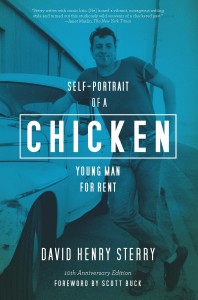 Amazon
Amazon
